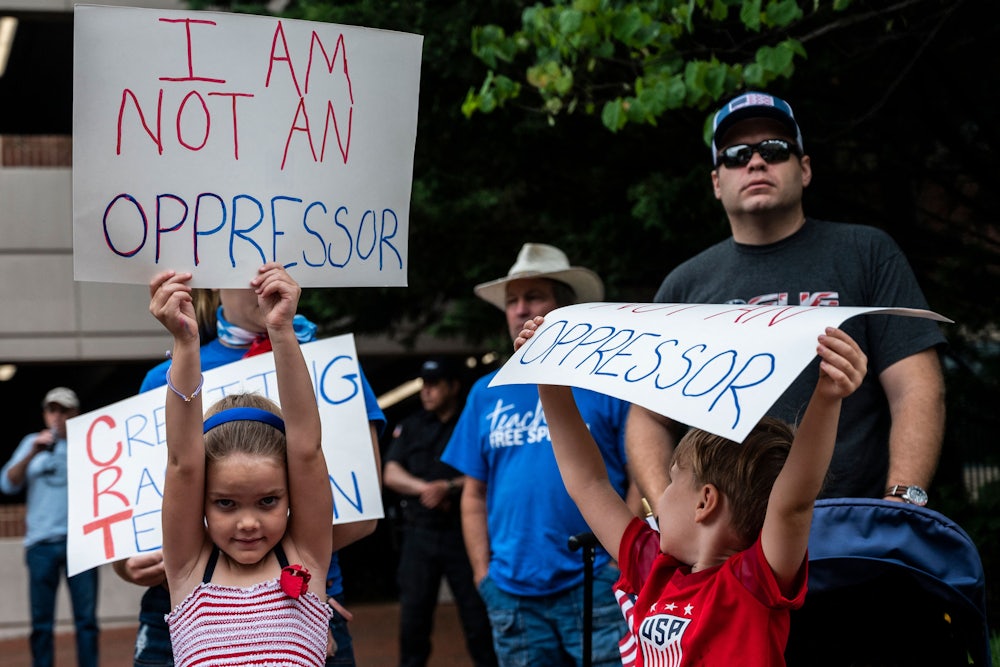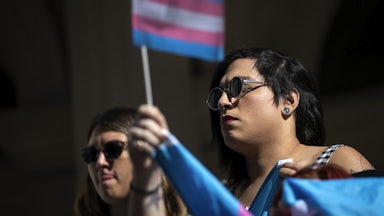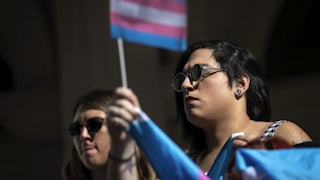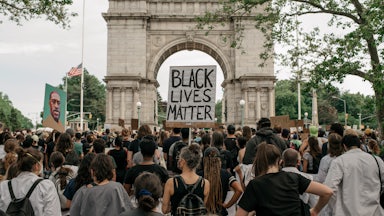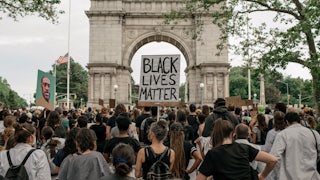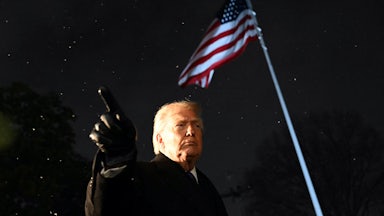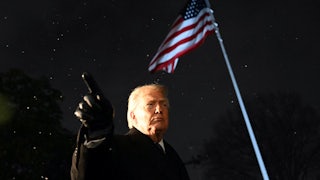In June, Matthew Hawn, a high school teacher and baseball coach in Blountville, Tennessee, was fired by the county board of education. The process had escalated in steps: Earlier in the year, Hawn assigned an essay by Ta-Nehisi Coates—“The First White President”—in his Contemporary Issues class, and a student’s father objected. In a complaint filed in February, the parent took issue with the piece’s “somewhat angry, and hateful opinion towards President Trump,” as well as specific words in the essay that he didn’t feel “should be introduced to our children by a high school teacher.” In response, Hawn was issued an “official letter of reprimand.”
In March, shortly after he was reprimanded, Hawn showed his class a video of the poet Kyla Jenée Lacey reciting her poem “White Privilege,” which brought him back before the school board. In May, he was served with dismissal charges. In that document, then–Director of Schools David Cox wrote that he found the poem unsuitable for high school students—not because of its subject matter but because Lacey used “inappropriate” words like “fuck,” “hell,” “shit,” and the n-word.
But the hand-wringing over language and age appropriateness was largely a pretext. To Cox and the other members of the board, Coach Hawn’s ultimate failure was one of bias: He had failed in “offering and discussing appropriate materials which provided a more conservative perspective on the same subject matter.”
Hawn’s story isn’t exactly new—conservative school boards and outraged parents have long flexed outsize power in the American classroom—but the timing of his case has garnered national attention. Tennessee, like five other states, now has a law on the books barring what conservatives decry as “critical race theory” from its schools, a remarkably swift crystallization of the backlash to our most recent reckoning with systemic racism (and one that attempts that classic inversion—that to talk about racism is the real racism). It’s a movement that must be viewed as inextricable from the attack on trans youth and the concurrent efforts in many states to limit or erase the teaching of queer history—often through the same laws. Hawn, in the public reception to his firing, has become an early answer to the question of where this moral panic and legislative escalation would lead.
These movements are simultaneous attacks on students’ capacity to learn accurate histories and how those histories have shaped the present, the labor rights of educators and teachers’ unions, and public education in the United States. This isn’t a secret: Earlier this week, Rich Lowry, the editor of National Review, bluntly called on so-called anti–critical race theory activists to use their energy to take “control of the K–12 schools in a swath of America.” Education “is too important to be left to educators,” he warned. And angry white parents are ready, once again, to carry the banner.
The aggrieved white parent is perhaps the most potent reactionary figure in this country, and the American classroom is a common scene of their aggrievement, waging battles against school desegregation and leading efforts fighting the teaching of evolution. It is, much like the Tea Party, a movement that is animated simultaneously by grassroots energy, anger, and resentment and fueled from the top, dynamics that feed off one another in a vicious loop.
One might think one’s seeing the true face of these laws in school board videos gone viral—angry white parents demanding redress for their children—but that’s only a partial view. According to reporting by NBC News, both the American Legislative Exchange Council and the Heritage Foundation have been training up this new generation of right-wing activist parents, with the latter hosting at least one gathering of state lawmakers and activist parents to discuss model legislation. Former Education Secretary Betsy DeVos, whose family foundation has long poured money into efforts attacking public education and unions, has lately used the furor over critical race theory to promote her anti–public education agenda. “Americans should continue to declare independence from the monopoly of government-run, union-controlled schools,” DeVos wrote recently in an op-ed.
The repercussions of that partnership are becoming more clear: profound limits on teachers’ capacity to teach, whether through direct intervention or the chilling effect that these laws seem designed to inspire. In May, shortly after the passage of Oklahoma’s law, administrators at a community college reacted with panic and abruptly canceled an adjunct professor’s summer class on race and ethnicity, despite the state’s law targeting mostly K–12 education. It turns out it was responding to complaints filed by a student and a parent, the latter of whom complained that another instructor of the same class was pushing “critical race” and threatened to “hire a lawyer if he needs to,” according to emails obtained by the group FIRE in an open records request. (One of the offending materials in question, in case one is curious, is a video on the impacts of redlining on Black Americans; the class as a whole, the student wrote, made them feel “attacked for the color of my skin.”) The class was later reinstated but, according to USA Today, is now an elective.
In Texas, according to EdWeek, the Dallas school district will be forced to cancel classes on Black and Latino studies that it only recently began offering in response to that state’s new law. And across the country in recent months, public school administrators committed to racial equity—spoiler: They’re often Black—have faced so much harassment from irate parents that they have resigned. One woman, the diversity coordinator in a school district in the St. Louis suburbs, left her job after she received threats so alarming that the district felt the need to hire private security to monitor her home.
The moral panic around efforts at anti-racist education—which, as both New York magazine’s Sarah Jones and The Guardian’s Julia Carrie Wong have pointed out, is a very old one wrapped in updated clothing—is the predictable result of several strands of right-wing outrage, undergirded by the force that generates so many reactionary movements: the need to protect and save (white) children.
It is a movement generated by feelings—what the late Lauren Berlant described in 2016 as the desire to feel “freedom from shame.” (“Civil rights and feminism aren’t just about the law after all, they are about manners, and emotions too: Those ‘interest groups’ get right in there and reject what feels like people’s spontaneous, ingrained responses,” they wrote.) What else explains why so much of the language in these laws speaks of the need to protect—again, largely white—students from, as one puts it, “discomfort, guilt, anguish”? What else explains a proposed University of Nebraska resolution against so-called critical race theory, championed by the state’s Republican Governor Pete Ricketts, that states that “America is the best country in the world and anyone can achieve the American Dream here” and that “Critical Race Theory proponents,” on the other hand, “disparage American ideals”?
At the end of June, a group in Tennessee calling itself Moms for Liberty Williamson County filed the first formal complaint resulting from the passage of Tennessee’s law. In the complaint, they singled out four books in a curriculum targeted to second graders, including two books on the life of Ruby Bridges. These books violated the state’s new law with their “heavily biased agenda” that “makes children hate their country, each other, and/or themselves,” according to the complaint. The offending images in these books, the complaint made clear, depicted segregated drinking fountains, firemen turning their hoses on Black children, and white parents protesting racial integration—all indisputable facts from our recent past. But to Moms for Liberty, teaching this history was “indoctrination” and will “sow the seeds of racial strife, neo-racism, neo-segregation, and is an affront to the ideals of Dr. Martin Luther King, Jr.” (In a bit of a twist, one of the books they objected to was Martin Luther King Jr. and the March on Washington.)
The remedy these parents seek is censorship (the removal of the entire curriculum), increased precarity for teachers, and an environment of silence and erasure for marginalized students. To assuage their hurt feelings and outrage, what they’re calling for is the extension of the control they wield in private—in their homes and within their nuclear families and over their children—into the public sphere.
As one mom alleged in a letter included in the complaint, her biracial son—she is Asian American, and her husband is white—is now “ashamed of his white half.” In one of the two examples she provided to illustrate her point, she shared that he read a story about Black high school students being attacked in their attempts to integrate a lunch counter. His response, according to her, was, “This story is so sad.” Soon enough, he will likely be protected from such discomforts.
